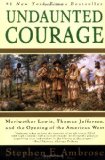Book Review: "So Brave, Young and Handsome" by Leif Enger
April 30, 2008
Enger’s second novel gracefully tells a very American tale of identify and redemption, uncoiling with an almost Homeric, profound cadence, but in the end telling us less than I’d like. Sometimes what you look for in a book are the slight edges of imperfection. Sometimes when reading something classic, something fully planed flat and careful, we lose our way and are unable to feel enough. Perhaps that’s what happened to me here. No little burrs of emotion snagged into my soul.
It’s 1915. Monte Becket, a flailing, possibly dilettante writer with a rather too-lovely, whipsmart little family up in Minnesota (and obvious latent wanderlust), decides to tail along with Glendon, a fugitive felon whose crimes include…well, pretty much everything. But Glendon is good at making boats. And drinking.
What follows is an adventure tale that has that heavy, attractive feel of that underpinning of adventure stories that has been with us since prehistory. And it echoes the masters who have wielded the brush of this kind of adventure. Sections of river travel smack of Mark Twain. High plains and western happenings have shadows of (softer) Cormac McCarthy, Kent Haruf, Ivan Doig. Even the occasional burp of Steinbeck, especially towards the end of the novel.
Parts are downright appealing. The river-floating and turtle-catching center of the country now lost to modernity. Cowboys with depravities. Floods and shooting. It is a fun read, full of crisp and hearty language.
Characters speak in off-the-cuff, just-then-coined, beautiful proverbs. The countryside is dashed off in a few words or sentences that leave no doubt, and leave the reader room to roam the textures of the characters and the plots.
But some things–the bigger pieces–don’t deliver fully. There’s a pattering, heavily thumping sub-current of redemption. Glendon’s nearsightedness and other characters’ various types of blindness are emphasized. Without giving away plot points, I can say that the way these themes are handled and wrapped up left me cold. I found it hard to reconcile the motives of Becket in a few places, about two-thirds through the book–he left me exasperated. Additionally, the excitement and clarity of the structure and language in the book leave one expecting a swelling, memorable resolution and instead I feel blank.
But! I think someone of different temperament, at a different emotional point than I am right at the moment, might find this book deeply moving. I can imagine it filling a particular shape of personal void. And, for Enger’s admitted firm grasp on the language, and the enjoyability of the story, it still gets high marks.
Recently Reviewed
Get the Books
Read my Reviews
Related Posts
- House of Sand and Fog (Oprah's Book Club) by Andre Dubus III
October 2, 2007 - Book Review: “Kaaterskill Falls” by Allegra Goodman
January 4, 2010 - "In the Heart of the Sea: The Tragedy of the Whaleship Essex" by Nathaniel Philbrick
January 29, 2007 - Book Review: “The Left Hand of Darkness” by Ursula K Le Guin
April 14, 2010 - Book Review: “Sense and Sensibility” by Jane Austen
March 11, 2010




